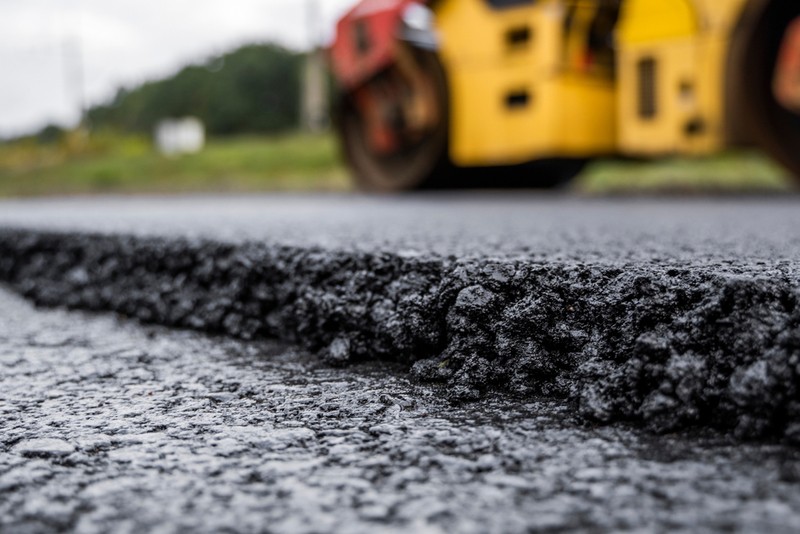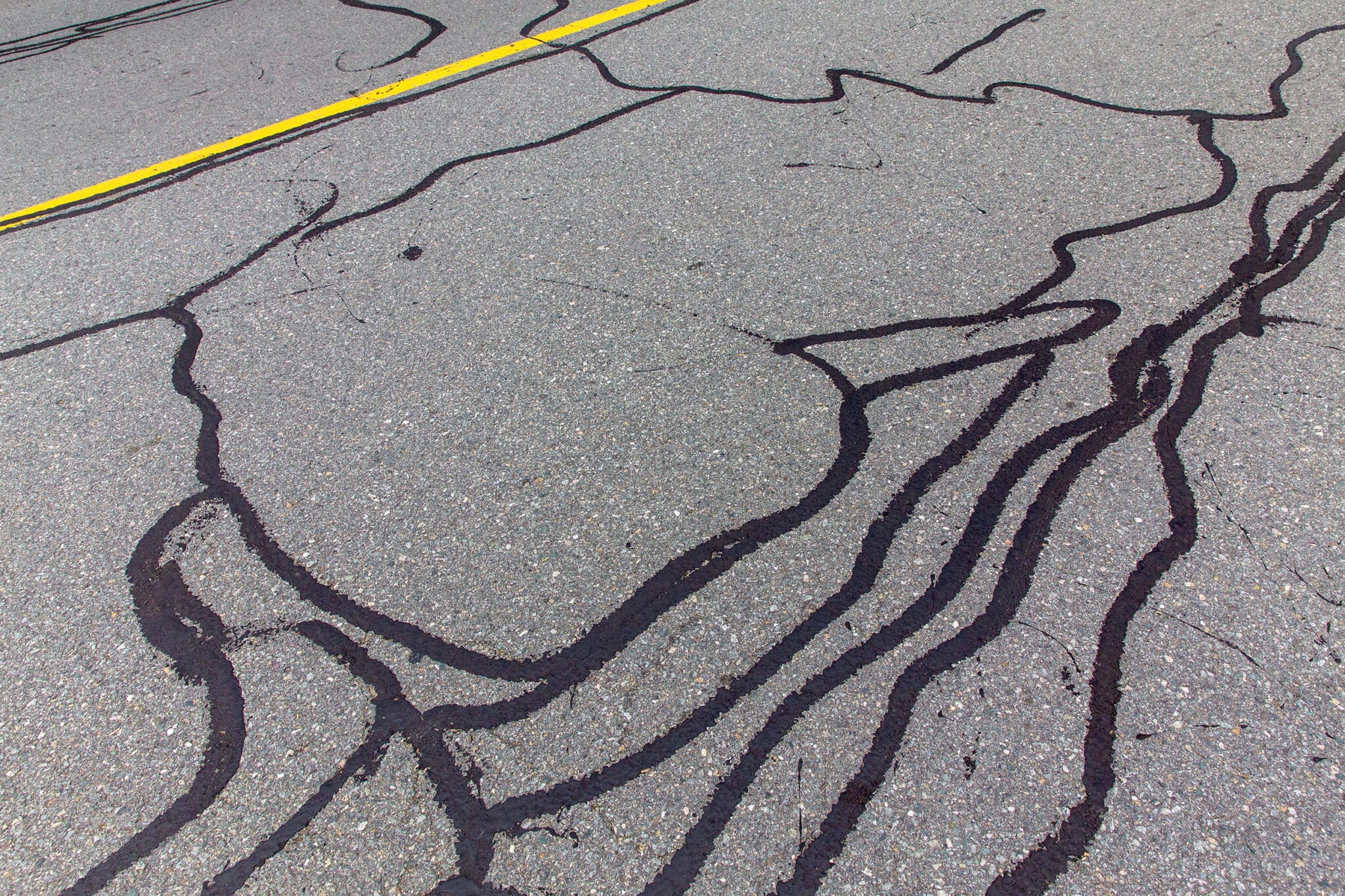Raise Security and Charm: Angled Parking Lot Solutions with Asphalt Sealing
Raise Security and Charm: Angled Parking Lot Solutions with Asphalt Sealing
Blog Article
Hot Mix Asphalt: A Sustainable Solution for Sidewalk
Warm Mix Asphalt (HMA) has arised as a leading sustainable choice for sidewalk solutions, supplying a myriad of cutting-edge innovations and environmental benefits. As the need for environmentally friendly building and construction methods expands, checking out the subtleties of HMA's sustainability can offer beneficial insights right into the future of sidewalk services.
Ecological Benefits of Hot Mix Asphalt

In Addition, Hot Mix Asphalt aids to mitigate metropolitan heat island impacts. Its dark shade absorbs sunshine, reducing the amount of warmth reflected back into the ambience compared to lighter-colored pavements. This can decrease ambient temperatures in metropolitan locations, decreasing the demand for cooling and ultimately decreasing power intake.
On top of that, Warm Mix Asphalt adds to improved stormwater management. Its porous nature enables water to penetrate the sidewalk and reenergize groundwater supplies, decreasing overflow and the danger of flooding. These environmental benefits make Hot Mix Asphalt a sustainable option for leading roads and highways.
Energy Efficiency in HMA Production
Is energy performance a critical variable in the production of Hot Mix Asphalt (HMA)? Power plays a considerable role in the manufacturing of HMA, affecting both cost and ecological sustainability. One essential facet of power efficiency in HMA manufacturing is the use of cozy mix asphalt (WMA) innovations.
In addition, developments in plant modern technologies have led to even more energy-efficient HMA manufacturing processes. By enhancing power use in HMA production, the market can lower its carbon footprint while maintaining top notch sidewalk materials.
Recyclability of Hot Mix Asphalt
The recyclability of Warm Mix Asphalt (HMA) is a crucial aspect of its sustainability and long-term environmental effect. HMA is just one of the most recycled materials in the United States, with over 100 million heaps of redeemed asphalt pavement (RAP) being recycled annually in brand-new pavement construction. Recycling HMA offers several ecological advantages, such as reducing the need for virgin materials, reducing energy usage throughout manufacturing, and reducing the quantity of waste sent out to garbage dumps.
The process of recycling HMA entails crushing the existing pavement, squashing it right into smaller pieces, and blending it with new accumulation and asphalt binder to produce a recycled mix. In general, the recyclability of HMA plays a significant duty in promoting sustainable techniques within the pavement sector.

Long-Term Efficiency of HMA
Asphalt pavements show resilience and durability over a prolonged duration, mirroring the lasting efficiency of Warm Mix Asphalt (HMA) The long life of HMA can be credited to its capacity to hold up against rush hour lots, rough weather, and the results of aging. Researches have actually revealed that well-designed and correctly constructed HMA more information pavements can last for two decades or even more with routine maintenance. The key to taking full advantage of the long-lasting performance of HMA exists in making use of top notch products, complying with best techniques in building and construction, and carrying out efficient maintenance approaches. Correct drain, routine examinations, and prompt repair work are essential for maintaining the architectural integrity of HMA sidewalks gradually. Additionally, innovations in HMA modern technology, such as the use of polymer-modified binders and cozy mix asphalt, have actually further boosted the toughness and longevity of HMA pavements. By prioritizing top quality building and maintenance methods, HMA remains to confirm itself as a sustainable and cost-efficient option for long-lasting sidewalk infrastructure.

HMA: Longevity and Sustainability
Showing both resilience and sustainability, Warm Mix Asphalt (HMA) has come to be a foundation in the construction of durable pavement frameworks - angled parking. HMA's longevity comes from its capacity to endure hefty loads, rough weather problems, and high traffic volumes, making it a reliable option for highways, highways, and airport terminal runways. The structure of HMA, which typically includes accumulations, binder, and filler, plays an important duty in enhancing its durability and resistance to damage
Additionally, HMA's sustainability depends on its recyclability and energy-efficient production process. The capability to recycle redeemed asphalt pavement (RAP) in new HMA blends lowers the demand for virgin materials and reduces the ecological influence of sidewalk construction and maintenance. Furthermore, the power performance of generating HMA lies in its lower mixing temperature levels compared to other sidewalk products, bring about lowered energy consumption and greenhouse gas emissions.
Conclusion
Finally, warm mix asphalt (HMA) supplies a lasting solution for sidewalk with its anonymous eco pleasant features. HMA's recyclability, power performance in manufacturing, and lasting longevity make it an eco-friendly choice for roadway building and construction. By preserving natural deposits, minimizing waste, and reducing greenhouse gas emissions, HMA plays an essential click to investigate role in promoting sustainability in framework growth. Its capability to reduce urban heat island results better emphasizes its value in creating resilient and eco aware sidewalk systems.
HMA is one of the most recycled products in the United States, with over 100 million loads of redeemed asphalt pavement (RAP) being recycled every year in new sidewalk construction.The procedure of recycling HMA entails milling the existing sidewalk, crushing it right into smaller pieces, and blending it with new accumulation and asphalt binder to create a recycled mix.Asphalt sidewalks demonstrate toughness and resilience over an extensive period, showing the long-term performance of Warm Mix Asphalt (HMA) Additionally, innovations in HMA technology, such as the usage of polymer-modified binders and cozy mix asphalt, have additionally enhanced the toughness and longevity of HMA pavements. The capacity to recycle reclaimed asphalt sidewalk (RAP) in brand-new HMA mixes lowers the demand for virgin materials and minimizes the environmental influence of sidewalk building and upkeep.
Report this page